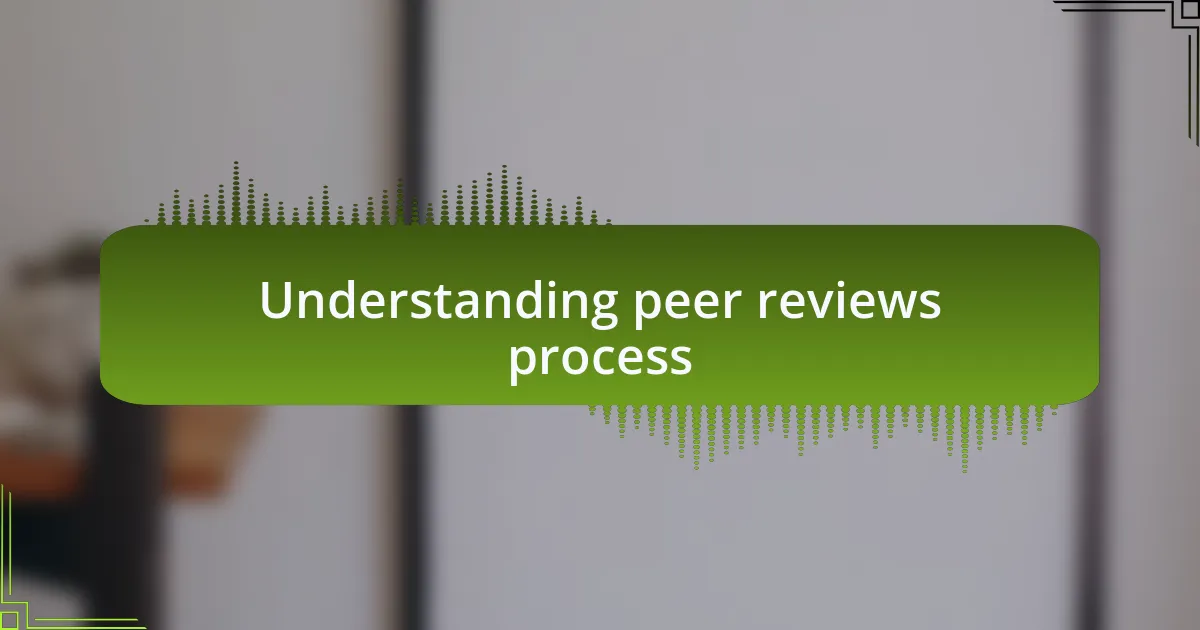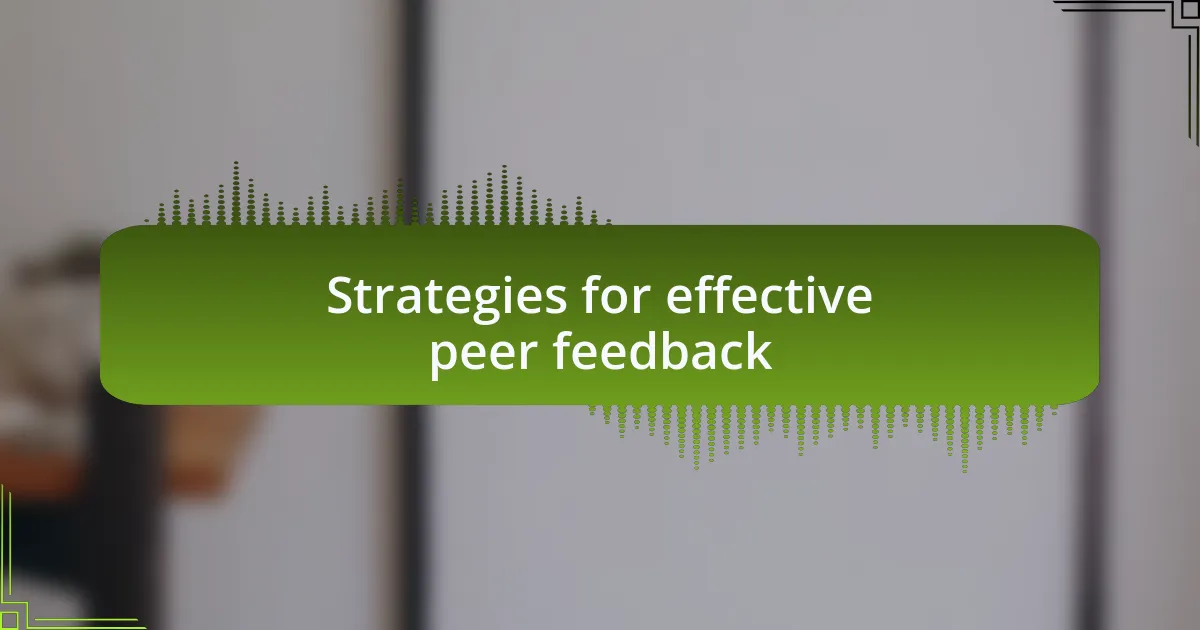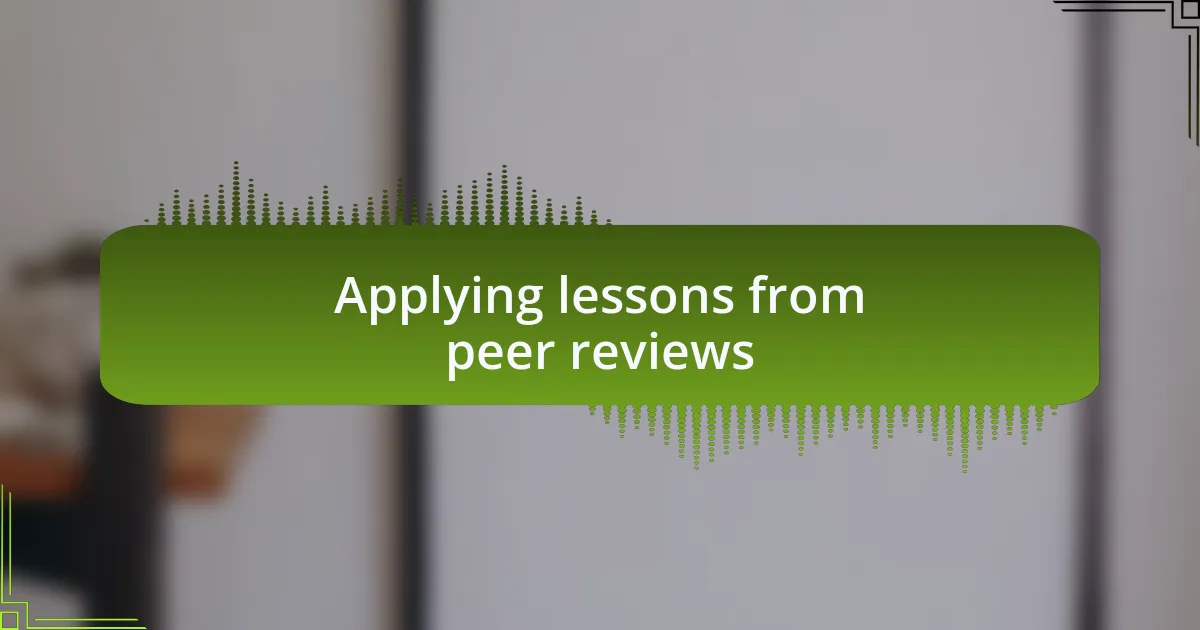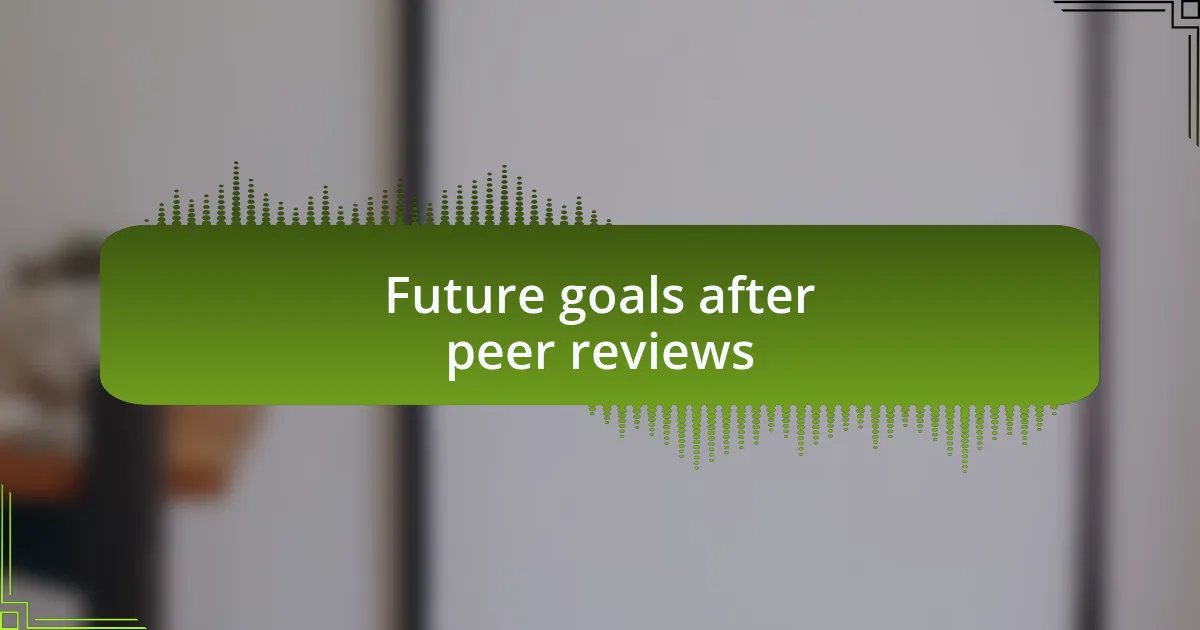Key takeaways:
- Constructive criticism is essential for growth and improvement in the peer review process.
- Empathy and clarity in feedback foster a respectful and productive exchange between reviewers and creators.
- Adaptability is crucial; being open to feedback can enhance creative projects significantly.
- Setting clear goals during peer reviews can focus discussions and lead to more meaningful feedback.

Understanding peer reviews process
The peer review process can feel a bit overwhelming at times, but it’s fundamentally about collaboration and growth. I remember my first experience as a reviewer; I was nervous yet excited to provide feedback. The thought crossed my mind: “Am I being too critical?” But I quickly learned that constructive criticism can pave the way for improvement, both for the creator and me as a reviewer.
One key aspect of the peer review process is the anonymity often involved. This can lead to a more honest exchange of ideas. I once received a review that pointed out a glaring oversight in my work, and while it stung initially, it sparked a deeper reflection on my approach. How can we truly grow if we don’t allow ourselves to face uncomfortable truths?
Engagement is central to any effective peer review. I find that when both parties are invested in the process, the feedback becomes richer and more actionable. During a collaborative project, I vividly remember how we transformed a simple suggestion into an innovative feature that enhanced our final presentation. It made me realize that every review can become a stepping stone toward brilliance when approached with an open mind.

Strategies for effective peer feedback
When it comes to providing effective peer feedback, clarity is paramount. I’ve found that using specific examples helps illustrate my points more clearly. During one of my own peer reviews, I pointed out how a particular scene in a video project could be more dynamic by altering its pacing. The creator responded positively and made those changes, which reinforced to me that clear, tangible suggestions build a bridge between critique and creative growth.
Empathy also plays a critical role in the feedback process. I recall a time when I received feedback that felt overly harsh. Instead of shutting down, I reminded myself that the reviewer’s intent was to help me improve. Asking myself, “How would I feel receiving this feedback?” helped me frame my own comments in a more constructive manner, fostering a sense of mutual respect in the review exchange.
Encouraging a two-way dialogue can dramatically enhance the quality of feedback. I know from experience that inviting questions about my review not only deepens the conversation but often leads to unexpected insights. When I asked a fellow creator what they thought about my feedback, we ended up brainstorming new ideas that neither of us had considered initially. It highlighted a simple truth: collaborative reflection can yield richer creative outcomes.

Applying lessons from peer reviews
One important lesson from peer reviews is the significance of adaptability. I remember a specific instance when I had to pivot my approach after receiving feedback on my video editing style. A colleague suggested that my transitions were too abrupt, which initially stung because I felt they showcased my creativity. However, after some reflection, I experimented with smoother transitions and was pleasantly surprised to find that they enhanced the overall viewer experience. This taught me that being open to changes can truly elevate my work.
Sometimes, the most valuable insights come from unexpected places. During a review session, a fellow participant pointed out how my background music clashed with the visuals, an observation I hadn’t considered. It made me think: how often do we overlook crucial elements because we’re too close to our projects? Embracing external perspectives not only challenges our vision but also prompts us to develop a heightened sense of awareness about our creative choices.
Lastly, I believe that setting clear goals for each peer review is vital. In one of my experiences, I went in with the aim of improving my storytelling techniques. When I articulated this objective to my peers, it focused our discussions and allowed me to receive targeted feedback that resonated particularly well with my aspirations. Have you ever set specific goals for a peer review? Doing so can transform the experience from a general critique to a meaningful step toward achieving your creative vision.

Future goals after peer reviews
When I think about my future goals post-peer reviews, I notice a distinct shift toward deeper collaboration. After one particularly eye-opening session, where a peer highlighted my handling of pacing in a project, I realized the potential of co-creating with others. I remember feeling a rush of excitement imagining how combining different perspectives could lead to innovative approaches. Isn’t it exhilarating to think about what can be achieved when we join forces and build on each other’s strengths?
Another goal I’ve set for myself is to integrate ongoing feedback into my projects. I genuinely believe that if I can create an environment where feedback is a recurring theme rather than a one-time event, my work will continuously improve. There was a time when I could only reflect on feedback once a project was complete, but now, I want to check in with my colleagues throughout the process. Have you considered how regular checkpoints could refine your work before it even reaches completion?
Ultimately, I aspire to use peer reviews as a springboard for professional growth. I remember a review that didn’t just examine my current projects but pushed me to think about where I wanted to be a few years down the line. That kind of forward-thinking dialogue has stuck with me. Isn’t it amazing how a simple conversation can lead to such profound realizations about our paths? My future goals encompass not just refining my techniques, but also clarifying my artistic voice for the long haul.